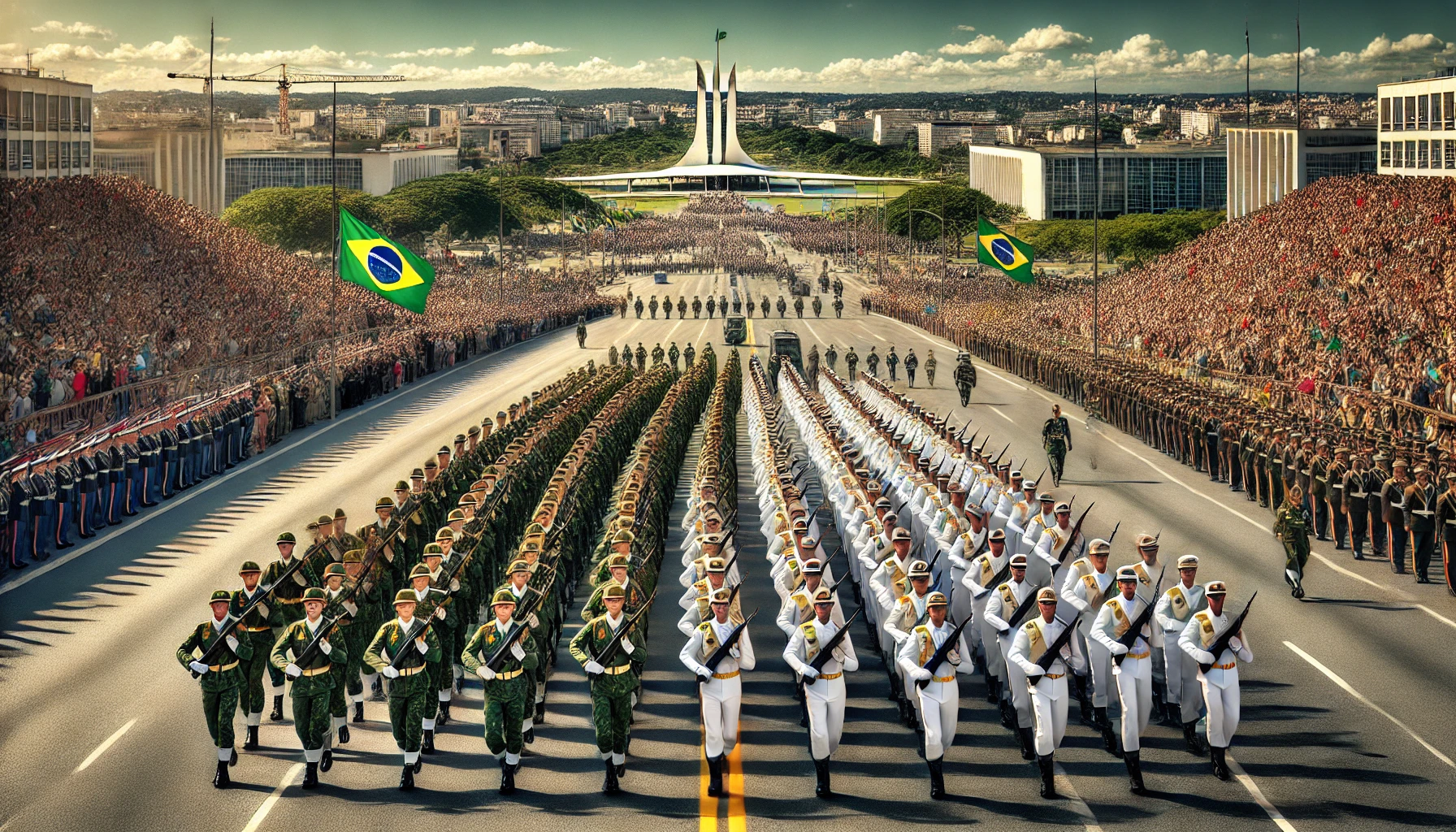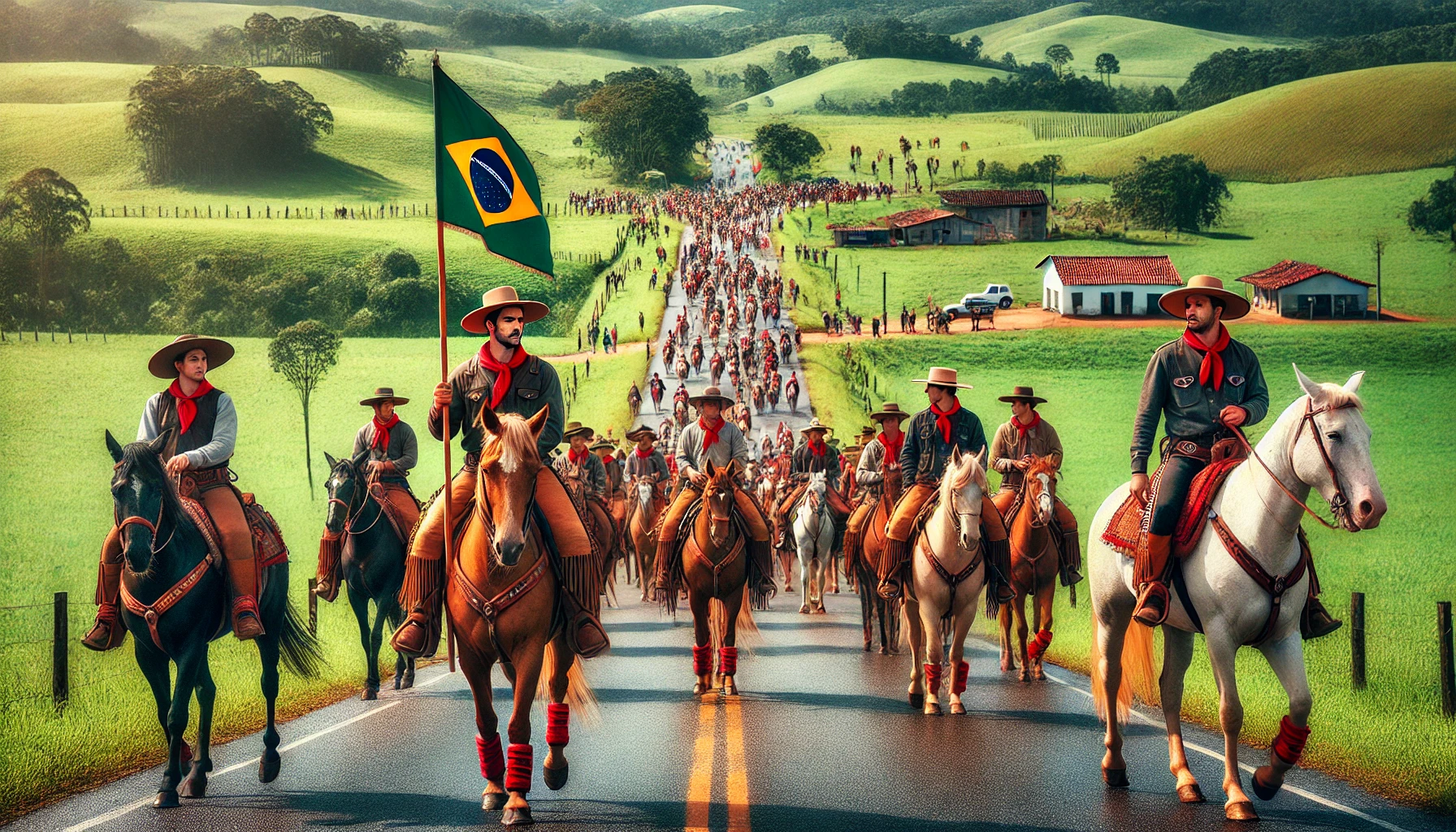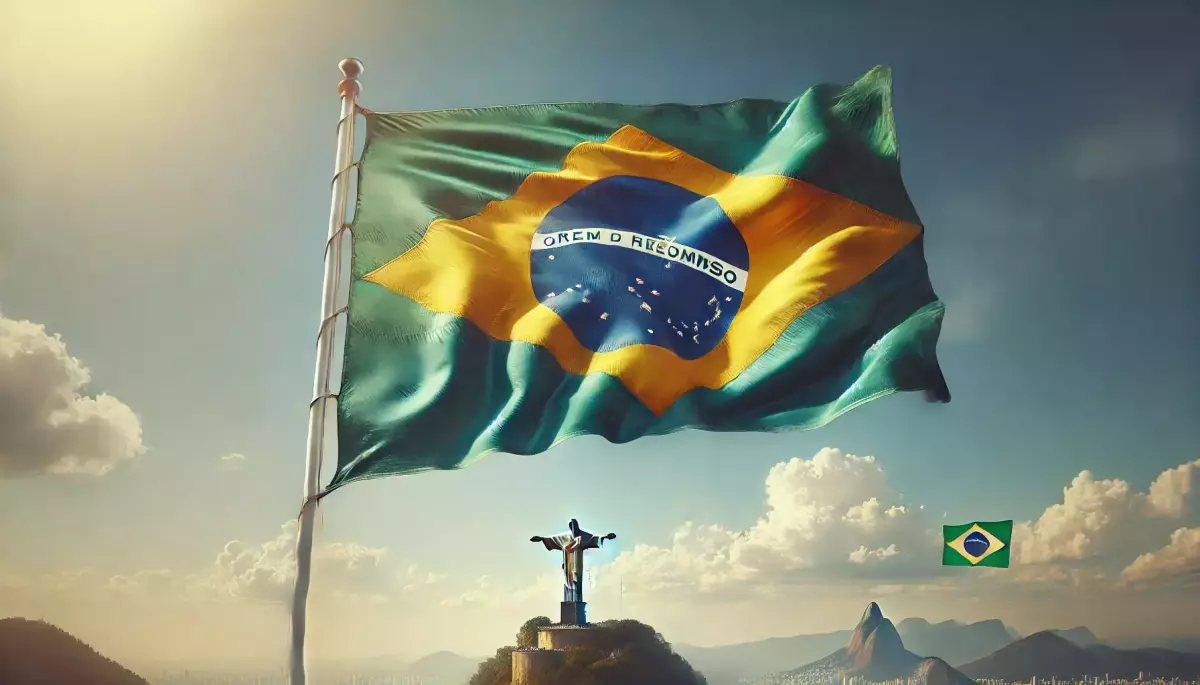Brazil's Independence Day is a date that symbolizes the country's liberation from colonial rule, celebrated annually on September 7th. This celebration not only marks a crucial moment in Brazilian history but also reflects the cultural and patriotic traditions that have shaped the national identity. The festivities, which include parades and civic events, are an opportunity for citizens to express their love for the homeland and recognize the value of freedom.
History of Brazil's Independence
The history of Brazil's independence is marked by a complex process of political, social, and cultural transformation. Brazil, which had been a colony of Portugal since the 16th century, began to seek greater autonomy in the early decades of the 19th century. The transfer of the Portuguese Court to Brazil in 1808, due to the Napoleonic Wars, was a crucial factor that awakened the desire for independence among Brazilians. Brazilians gained access to Enlightenment ideas and a new model of government, which intensified the demand for freedom and autonomy.
The climax of this movement occurred on September 7, 1822, when Dom Pedro I, son of the king of Portugal, proclaimed the independence of Brazil on the banks of the Ipiranga River. This date became a milestone in the country's history, symbolizing the break with the metropolis. The famous phrase "Independência ou Morte!" resonated throughout the territory, galvanizing the patriotic forces and marking the beginning of a new chapter in Brazilian history. This event was supported by various sectors of society, including merchants, intellectuals, and military personnel, who saw independence as an opportunity to build a stronger Brazil.

After the declaration of independence, Brazil faced a period of political instability and internal conflicts. The new nation sought to consolidate its sovereignty and establish a stable government. International recognition of independence only came in 1825, when Portugal finally accepted the separation. Since then, Brazil's Independence Day has become a national holiday, celebrated annually, serving as a reminder of the struggle for freedom and the construction of national identity.
Full Calendar of Independence Day of Brazil until 2050
| Year | Next Date |
|---|---|
| Independence Day of Brazil in 2025 | 09/07/2025 |
| Independence Day of Brazil in 2026 | 09/07/2026 |
| Independence Day of Brazil in 2027 | 09/07/2027 |
| Independence Day of Brazil in 2028 | 09/07/2028 |
| Independence Day of Brazil in 2029 | 09/07/2029 |
| Independence Day of Brazil in 2030 | 09/07/2030 |
| Independence Day of Brazil in 2031 | 09/07/2031 |
| Independence Day of Brazil in 2032 | 09/07/2032 |
| Independence Day of Brazil in 2033 | 09/07/2033 |
| Independence Day of Brazil in 2034 | 09/07/2034 |
| Independence Day of Brazil in 2035 | 09/07/2035 |
| Independence Day of Brazil in 2036 | 09/07/2036 |
| Independence Day of Brazil in 2037 | 09/07/2037 |
| Independence Day of Brazil in 2038 | 09/07/2038 |
| Independence Day of Brazil in 2039 | 09/07/2039 |
| Independence Day of Brazil in 2040 | 09/07/2040 |
| Independence Day of Brazil in 2041 | 09/07/2041 |
| Independence Day of Brazil in 2042 | 09/07/2042 |
| Independence Day of Brazil in 2043 | 09/07/2043 |
| Independence Day of Brazil in 2044 | 09/07/2044 |
| Independence Day of Brazil in 2045 | 09/07/2045 |
| Independence Day of Brazil in 2046 | 09/07/2046 |
| Independence Day of Brazil in 2047 | 09/07/2047 |
| Independence Day of Brazil in 2048 | 09/07/2048 |
| Independence Day of Brazil in 2049 | 09/07/2049 |
| Independence Day of Brazil in 2050 | 09/07/2050 |
Meaning of Independence Day
The Independence Day of Brazil, celebrated on September 7th, is one of the most significant holidays in the country. This day represents not only Brazil's political emancipation but also the formation of a national identity. It is a moment of reflection on Brazil's role in the global scenario and the ongoing struggle for freedom and equality. By celebrating this date, Brazilians reaffirm their commitment to democratic principles and human rights.
Moreover, the holiday provides an opportunity to discuss the historical legacy of independence and its implications in contemporary society. The meaning of independence goes beyond the break with Portugal; it involves the pursuit of social justice, economic development, and, primarily, the construction of a more egalitarian society. It is a day to remember that, despite advancements, there are still challenges to be faced in terms of rights and civil liberties.
Independence Day is also an occasion to celebrate Brazilian cultural diversity. The country, made up of different ethnicities and cultures, finds in independence a reason to unite its voices around a common ideal. The festivities and celebrations reflect this cultural richness, showing that independence is a value shared by all Brazilians, regardless of their origin or social condition.
Celebrations and Festivities Across the Country
The celebrations of Brazil's Independence Day vary significantly from one region to another. In many cities, the holiday is marked by parades, parties, and cultural events that bring the population together. The festivities often include presentations of folk dances, live music shows, and art exhibitions. These activities aim to promote local culture and strengthen the sense of belonging to the nation.
In Brasília, the capital of the country, the official parade is a major attraction, where military personnel, civilians, and students participate in a grand spectacle. This event is broadcast live on television, reaching millions of Brazilians throughout the national territory. The presence of authorities and the display of military equipment symbolize the strength and unity of the country. Furthermore, the parade is an opportunity to honor the heroes of independence and those who fought for freedom throughout history.

In various cities, the festivities also include traditional fireworks and popular parties. Families often come together to celebrate with typical foods, such as feijoada, pamonha, and other regional delicacies. This family and community unity reinforces the sense of celebration and gratitude for the hard-won freedom, transforming Independence Day into a moment of reflection and joy.
Regional Traditions and Customs
The traditions and customs surrounding Brazil's Independence Day vary widely across the national territory. In some regions, such as the Northeast, the festivities include typical dances, such as frevo and maracatu, which are rich and vibrant cultural expressions. These dances not only celebrate independence but also reflect the cultural diversity that characterizes Brazil, uniting different ethnicities and traditions.
In Southern Brazil, the celebrations may include horse parades and events that highlight Gaucho culture. Traditional music, such as fandango music and performances of typical dances, are common, bringing a regional touch to the celebration. Furthermore, the festivities often include local gastronomy, with typical dishes served at community parties.

In São Paulo, the celebration is marked by large events on Avenida Paulista, where the city transforms into a true stage of celebration. Shows by popular artists, along with stalls serving typical food, attract thousands of people. These regional traditions show that, although everyone celebrates independence, each place brings its own interpretation and way of valuing this significant date.
Reflections on Freedom and Citizenship
On Independence Day, it is essential to reflect on the concepts of freedom and citizenship. The independence of Brazil was not just a political break but also an invitation to build a more just and equal society. The freedom gained must be constantly defended and expanded, ensuring that all citizens have access to rights and opportunities. This is a challenge that remains current, requiring the engagement of every Brazilian.
Citizenship, in turn, implies responsibility. Celebrating independence means recognizing each person's role in building a better country. This involves a commitment to education, political participation, and respect for differences. True freedom is reflected in each individual's ability to make their choices and contribute to the common good. Thus, Independence Day becomes an occasion to reassess our values and actions in favor of a more just society.
Finally, reflections on freedom and citizenship must include recognition of the social challenges that Brazil faces. Issues such as inequality, racism, and poverty still persist and need to be addressed seriously. Independence Day is an opportunity not only to celebrate achievements but also to renew the commitment to the struggle for a more equal Brazil, where everyone can enjoy full freedom and citizenship.
